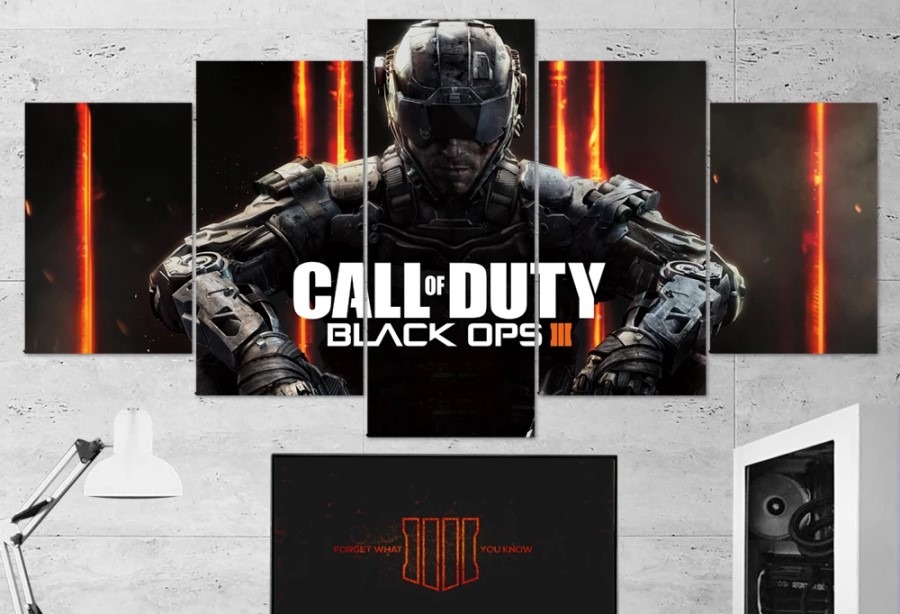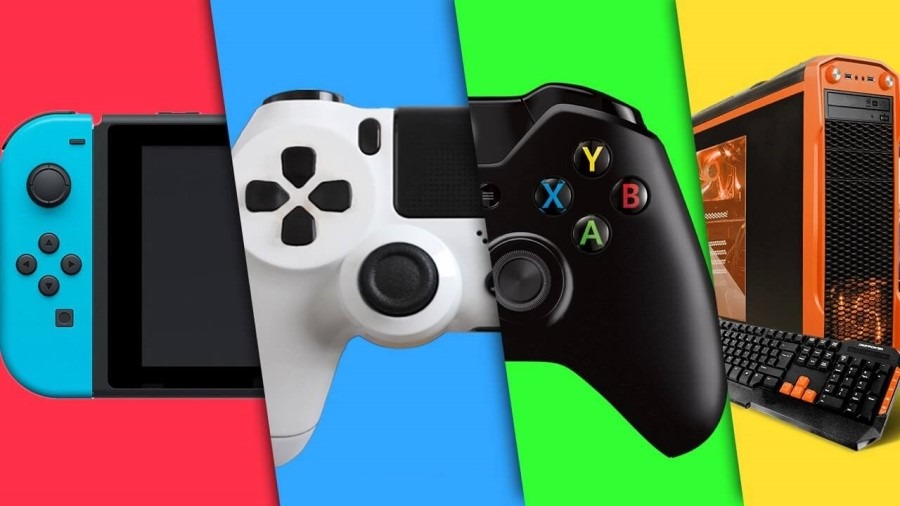Gamers come in many categories and even more sub-categories. Types of gamers can even be ranked, kind of like guilds and earning prestige just by playing certain types of games. Certainly, they get judged, often by one another. While this can be fun sometimes, other times it gets a bit annoying. All of this weird social stuff can be confusing or even upsetting, so arm yourself with knowledge!
If you’ve ever wondered what kind of gamer you are, how many types there are, or what all the fuss is about anyway, this is the article you’ve been seeking! Read on to learn more about gamers and how to defend your gamer honor.
Table of Contents
What Is a Gamer?
In the simplest terms, a gamer is anyone who plays and enjoys games. There is a lot more to the answer though. Gamers can be broken down into the genres or types of games they play and what platform they use. They can also be categorized by how they play or what their goals are. It depends on who you’re asking and what the context is.
For some reason, society has decided to give more credence and status to certain kinds of games—and the gamers who play them—while shunning other types. There isn’t much logic in how that works, but it’s worth knowing the details to see where you stand. It’s also helpful knowing what kind of gamer you are so you can properly represent your people.
Types of Gamers and the Games They Play

By far, the most common categories of gamers are the ones that deal with the types of games people play. Whether you are a gamer or not, you’ve probably heard some phrases such as FPS, RPG, and MMORPG (pronounced “morepeg”), just to name a few. Each of these phrases is, in fact, a genre of game. The players who enjoy these genres would be referred to as FPS players, RPG players, or MMORPG players.
That’s just scratching the surface though, and it’s a very simplified listing. You don’t always just tack “player” onto the end of a game genre and call it good. For example, RPG gamers often refer to themselves as RPGers or role players. In the gaming industry and gamer social networks, they have titles and other phrases they prefer, but these are so varied and rely heavily on location, age, gender, and other factors we can’t possibly list them all.
But we can offer some general guidance. Here are some of the most common types of gamers, listed by game genre.
- FPS or Shooters. First person shooters are games all about shooting other players or NPCs (non-player characters) with a variety of weapons such as gun or more primitive projectile weaponry. They can be multiplayer or single player. They can have upgrades to your weapons or powerful boosts to your character, but they are generally low on or devoid of any personalization, detailed character creation, or lasting character progress. There may be some simple level systems in place and prestige, or skills to choose, but these don’t go very deep in pure shooters. FPS games do not usually have deep stories or complicated maps. Examples include DOOM, Rust, and the Call of Duty games.
- RPG or RPGers. These are role playing games that involve deep and complex character creation and development over a long period of time. They sometimes span multiple games! You gain experience by defeating enemies, completing quests, or finishing other objectives. RPGs often have immersive environments, fully-fleshed out NPCs, voice acting, huge music scores, background music and sounds, and whole libraries of lore and back story to explore. Favorites include Skyrim and other The Elder Scrolls games, the Fallout series, the Zelda games, and the Final Fantasy franchise.
- FPS RPGers. This style of gamer enjoys FPS games with RPG elements. They have lots of action and fighting, but they also include detailed character customization and progression, deep stories, and lots options to customize your playing experience. Players will choose skills, boosts, and equipment along the way. FPS RPGs can lean heavily in one direction or the other, or they can be pretty evenly split down the center. There’s a ton of variety in these kinds of games. Some FPS RPGs include the Mass Effect games and Bioshock.
- MMORPG stands for massively multiplayer online role-playing game, and it is about as epic as it sounds. Massive numbers of players gather in an online world to battle monsters, zombies, aliens, or whatever enemies the game throws at them. They can often be played solo, but that defeats the purpose of belonging to an online world. The main appeal to MMORPGs, often shortened to MMOs, is that you can meet and play with people from all over the world. These games include all the RPG elements listed above, but in a world where everyone else can see and interact with your character, too. Classic MMORPGs are Everquest and Ultima Online. Recent MMOs include World of Warcraft and The Elder Scrolls Online.
- Battle Royale players gather in numbers online to hack, slash, and shoot their way through swaths of other players until one player is left standing. These online games are all about fast-thinking, sharp aim, and smart strategies. There is no time for character progression or storytelling; battle royale gamers know their number will be up if they take time to appreciate the scenery. Players are dropped onto a map and must scavenge for everything, including weapons and boosts. They are highly competitive and fast-paced. PlayerUnknown’s Battlegrounds (PUBG) is a popular choice in this genre as is Fortnight.
- Casual game players spend their time playing games such as Candy Crush, Merge Dragons, and Stardew Valley. These casual games are designed to be simple, addictive, easy to start, and hard to put down. Their purpose is to attract a wide range of ages and to help fill in the gaps between daily activities. Casual games come in a huge variety of genres such as puzzlers, strategy, platformers, exploration, building, and matching. These games are often found on mobile devices, but they can come on consoles and PC, too.
- Platformers and side-scrollers involve side to side action (or up and down). These involve running, jumping, and collecting items on a limited plane, often with platforms or blocks to jump to. Donkey Kong is a classic example of a single-screen platformer, while Super Mario Bros is a well-known example of a side-scrolling platformer. These games require good reflexes, critical thinking, and twitch-level reaction times.
- Strategy games are broken up into real-time strategy (RTS) and turn-based. Strategic planning, thinking ahead, and making backup plans are how strategy players get their kicks. These are often games with huge battles or civilization and world building games, each requiring critical thinking and planning ahead. Popular strategy games include the XCOM series, the Civilization games, and Supreme Commander.
- Action and adventure gamers love the thrill of battle, discovery, or fast-paced building. These gamers feed on adrenaline and need something exciting around each corner to feel satisfied. Action and adventure games encourage players to get out into the world and make some noise. Popular titles include Tomb Raider, Assassin’s Creed, and Resident Evil.
- Horror gamers like to be scared. While the horror genre can also be lumped into things like action or RPG, they get their own entry because of the very specific nature of their content. Other games may have some scary parts, but horror gamers are looking for something that instills creeping dread or all out terror for the majority of the session. Some great horror games include Dead Space, Prey, and Amnesia: The Dark Descent.
- Simulation gamers enjoy playing a day in the life of someone (or something) else. These games give you a chance to live a whole new life doing something new and different. Simulations games include titles such as The Sims, Kerbal Space Program, Farming Simulator 19 (no, really!).
- Sports games bring all the action and excitement of real-world sports to your screen. You can create you own teams and play through seasons to reach the top of the rankings either in single player or multiplayer. There are sports games out there for just about every sport including soccer, football, and basketball. Some favorites in this genre are Rocket League, FIFA 18, and Mutant Football League.
- Racing gamers live for the adrenaline rush of speeding around a track, through tunnels, and over difficult terrain. You like speed? Racing games are made for fast-responses and a keen eye for upcoming sharp turns and danger. Racing games can either be realistic or set in fantasy worlds that will blow your minds… if you dare to slow down long enough to enjoy the scenery, that is. Some popular racing games include Mario Kart, Dirt Rally, Project Cars 2.

If You Are interested, Read Our Article About
Should I Switch to PC Gaming? 7 Reasons Why You Should!
But what about JRPGs? Why aren’t they on the list? Am I racist? No, silly. JRPGs are simply a subcategory of the already huge category of RPGs. It quite literally means Japanese role-playing game, an RPG that was made in Japan. Simple! But for something so simple, boy is there a lot of arguing on this one. That’s a whole article in and of itself and I’m not getting into it right now.
Each of these genres can be broken down into a mess of sub-genres. The bottom line is that these genres listed here have gamer “types” associated with them. The subs don’t really matter. If you like JRPGs, you like RPGs, which means you’re a role player. If you like dirt bike racing games, you like racing games.
Types of Gamers and Their Platforms

Sometimes, gamers will categorize themselves based on their chosen platform, not the type of game they play. This is the categorization that usually gets the most heat. For some reason, people judge one another on the platform they use.
- PC gamers have been around since personal computers were first released to the public. These diehard fans often eschew consoles. The divide isn’t as large as some might have you believe, though. The truth is that many PC gamers also have and enjoy consoles and mobile games, as well. PC gamers have the most flexibility and the most options of all the electronic platforms. Since you can purchase a PC for a few hundred bucks and then upgrade its individual components as needed for years and years, PC gamers are able to spread out the cost of gaming and maximize the usage of their rig. PC gaming also has a massive list of games that are available, including the oldest classics and the newest AAA titles. PC gamers also have the luxury of using their gaming PC for other things like work, internet browsing, email, social media, art, writing, and whatever else floats their boats.
- Console gamers prefer playing on machines made specifically for the sole purpose of gaming. These include consoles such as the Xbox series, PlayStation consoles, and Nintendo consoles. While these gaming machines can run a decent number of games, they are limited in their functionality and were built to really only do one thing well: play games. They cannot be upgraded in the same ways that a PC can, though some models allow for minor upgrades to storage or processing power. Part of the limitations to console gaming is that many, many game developers are console specific. That means certain games will only ever be available on that specific console (until they get ported to PC, of course). Another downfall to console gaming is that the newest consoles are rarely backward compatible—meaning older games from previous versions of the consoles rarely work on the new ones. You’ll have to re-purchase your older games, if they are available at all.
- Mobile gaming has seen a massive spike in the last few years. As more and more people add mobile devices to their lives, mobile gaming gets more and more attention. Mobile games used to be strictly casual, simple, and sometimes childish. Yet, recently, there has been a huge influx of mature titles and complex games such as full RPGs and difficult strategy games. Mobile gamers use their cell phones, tablets, and other mobile devices to get their rocks off. The benefit of mobile gaming is that you can bring your entertainment with you wherever you go. Console gamers and PC gamers don’t have this luxury—except laptop users, of course. The limitation of mobile gaming is that mobile devices don’t have the storage space necessary for truly eye-popping graphics, killer music, or huge games.
- Board and tabletop gamers enjoy spending time with real-life items, game pieces, boards, and the tactile satisfaction of actually touching the game world. Board gamers and tabletop fans often play with other people in small groups. These are the most social games available, as they require someone to host the group and usually need a GM, or game master, to run it. Face to face time is important for these kinds of gamers. Board games and tabletop games can be simple, taking just a few minutes to complete, or they can be complex adventures that last months or even years.
- Pub gamers enjoy things such as darts, pool, and shuffleboard. While not all pub games actually reside in pubs, they started out there, so the name sort of stuck. These are real-world games that have a small social aspect, too.
- Card gamers enjoy playing with decks of cards. These are either standard card decks for games like Poker, or specialized decks for games such as Magic the Gathering. No matter the game, the cards are the star here and not just a small aspect of a bigger game.
Types of Gamers and Their Playstyles or Goals
It’s possible to be one of these types of gamers or a mix of two or more. A lot of this depends on mood, available time, and how exciting a particular game is at the moment. Genre and platform don’t really matter here; it’s all about personality. Do any of these gamer types sound like you?
- eSports athletes get paid to play competitive games such as Overwatch, Fortnite, and certain racing games. While eSports athletes certainly enjoy gaming, it is a job and therefor comes with the same stress as any other job. You might consider an eSports athlete a professional gamer.
- Casual gamers don’t take things too seriously. They play when they feel like it, often an hour or so a few times a week. They enjoy games (whichever genre they prefer), but don’t need to game every single day to be happy.
- Dedicated gamers love to play games, but they don’t require them for happiness. They may choose to spend a 12-hour stretch playing a particular game every so often, but otherwise, they play an hour or two a day, sometimes more. Dedicated gamers get attached to their games or their rigs, and they play a variety of games to feed whatever cravings they have at the moment. They may get grumpy if they can’t play for a few days at a time, but it’s not the end of the world. Most gamers fit into this category.
- Competitive players differ from eSports players in one important way. These players do not get paid to play; they do it for the personal glory or for status in their guilds. Competitive players like to have the highest score and best ranking. Gaming isn’t a job for them; it’s a lifestyle choice.
- Hardcore gamers are those who play for long hours, every day (or nearly every day), and often take the games somewhat seriously. They will talk about games for hours if you let them, and they often boast massive collections of games. There is some disagreement in social circles whether “true” hardcore gamers actually call themselves this, but it doesn’t really matter. Whatever name they go by, these gamers live for the game and spend more time playing them than possibly any other activity.
- Trophy hunters play games for the purpose of collecting as many trophies, awards, badges, or achievements as possible. They’re a bit like competitive players, but they don’t necessarily need to have the highest score or the top ranking. For these folks, it’s all about the sweet loot or awesome badges for bragging rights.
Conclusion
There are countless categories of gamers, many of them depending on location, game type, and too many other factors to cover in depth here. The types of gamers mentioned in this article are the most well-known, or at least the most mentioned online and in gaming circles. Most people will fall into several categories, and sometimes might jump from type to type depending on the day or their mood.
No matter your gamer type, I think it’s important to be polite and respectful to other gamers. The in-fighting is ridiculous and pointless. We all love games; why does it matter what we play on, which games we play, or how many hours we put into them?
Image Credit: noobie.com / gamewallart.com / bagogames.com
Last modified:











